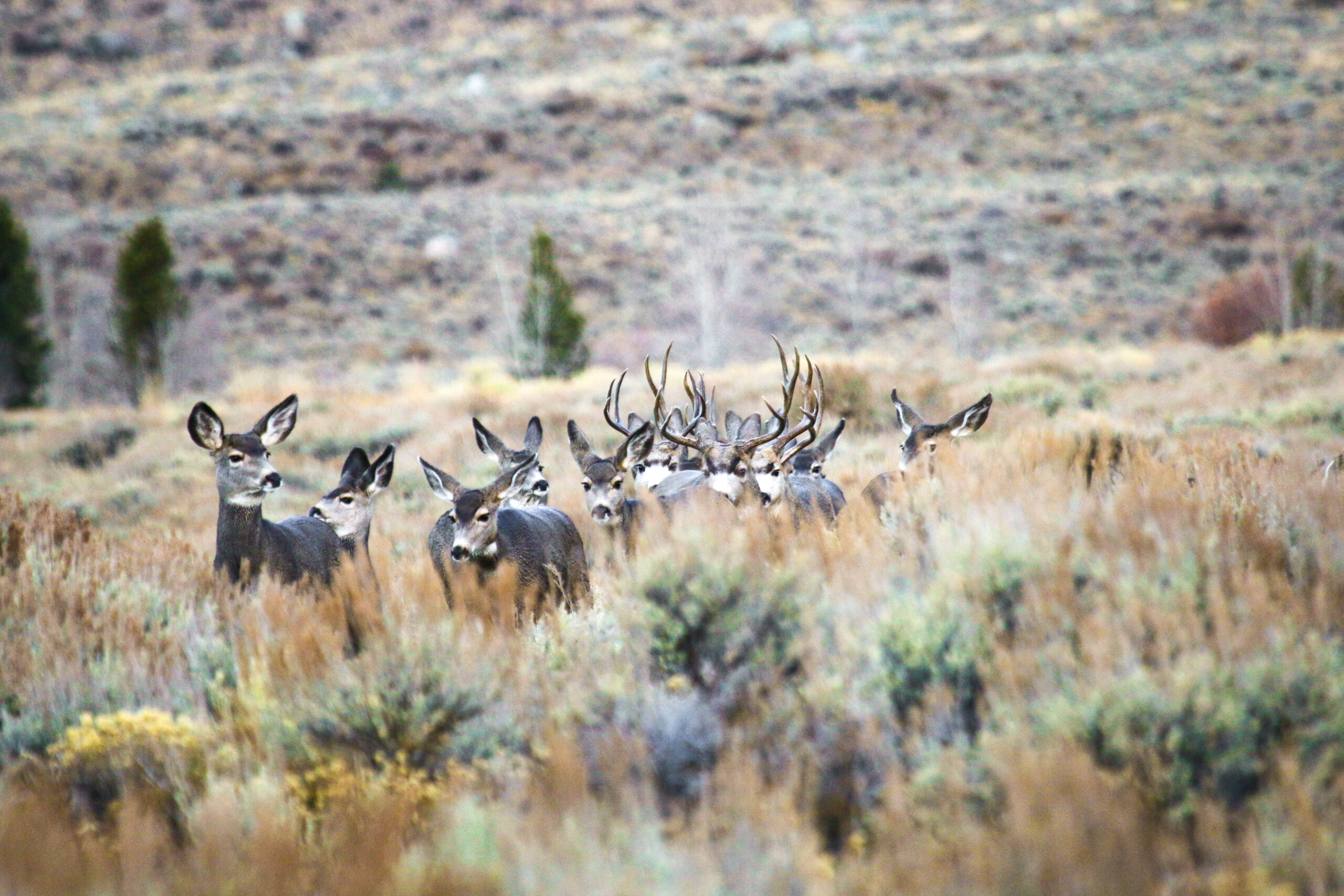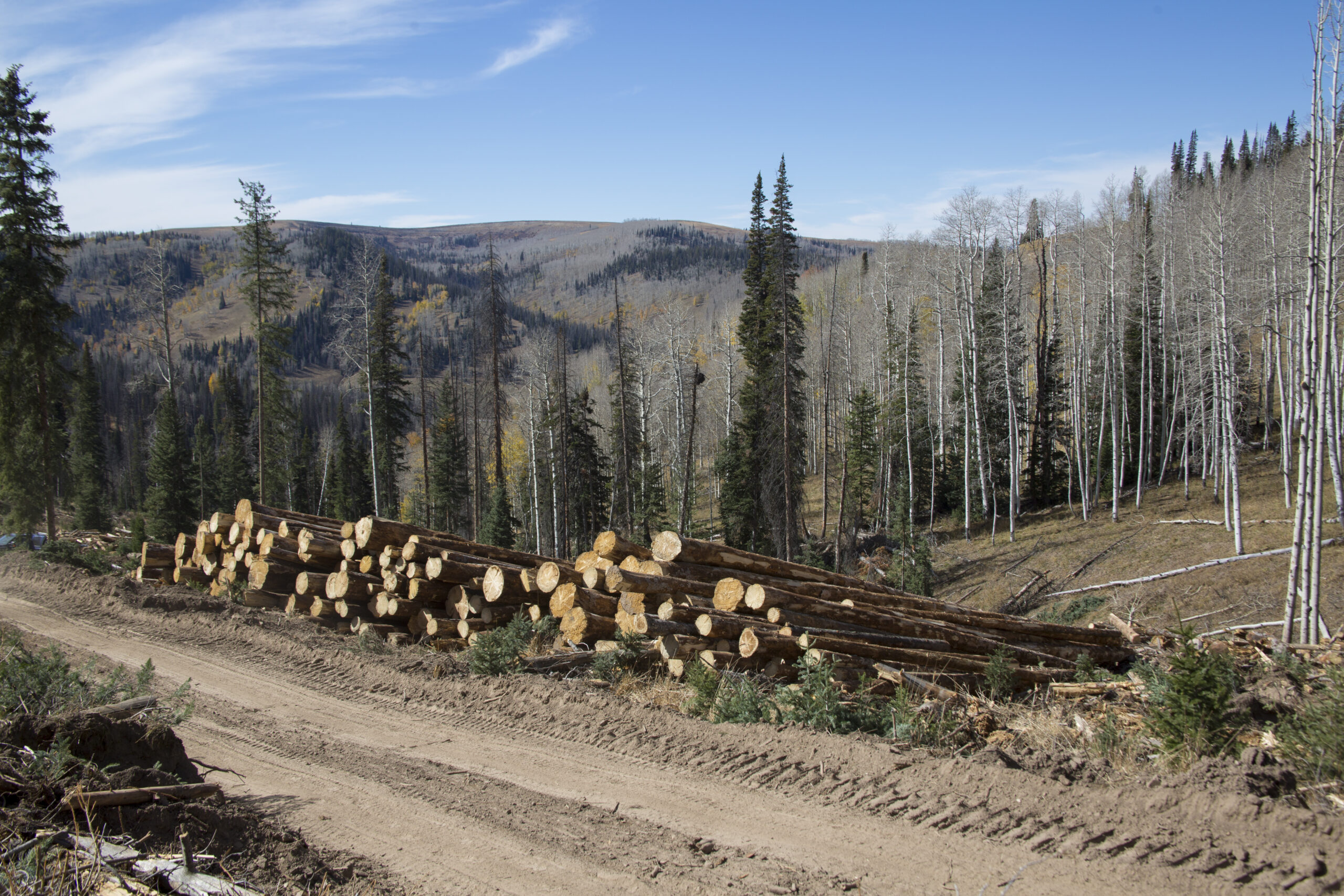Congress’s Week-Long War on Wildlife
The House of Representatives may only be a month in to the new Congressional session, but they’ve wasted no time in mounting a week-long attack on wildlife and wild lands. This week’s triple threat includes bills that attack our great landscapes, outdoor recreation opportunities, and protections for wildlife.
Un-Sportsmanlike Conduct

A cub in Yellowstone National Park. Photo by National Wildlife Photo Contest entrant Steve McMorran.
In a 2012 national poll commissioned by National Wildlife Federation, a majority (60%) of sportsmen polled said conservation is just as important as or more important than gun rights. Congress should be working to put together a bill that truly increases recreational access and reauthorizes important conservation programs, like the Land and Water Conservation Fund or the North American Wetlands Conservation Act program. Unfortunately, the SHARE Act is an undercut to wilderness, wildlife habitat and government transparency under the guise of a bill that will improve sportsmen’s access to federal public lands.
Gutting Environmental Protections
The fun continues on Wednesday, when the House will vote on H.R. 3964, a radical drought response bill that would override Endangered Species Act protections for fish and wildlife as well as state water law in California’s Bay-Delta estuary, the largest estuary on the West Coast of the Americas. This legislation is not a temporary measure to address drought, but rather is an attempt to permanently repeal federal environmental laws that are critical to protecting wildlife.
Among many other harmful provisions, this bill eliminates Endangered Species Act protections for salmon and other native fisheries, and overrides state environmental laws that mandate similar or stronger protections than the federal Endangered Species Act. While these provisions are limited to the Delta—for now—they could impact countless wildlife in the region and set a troubling precedent for future legislation.
Irresponsible Lands Management
On Thursday, the week’s war on wildlife will go out with a bang when the House votes on H.R. 2954, a package of harmful lands legislation that includes a bill that would sell off and dispose of federal lands, and multiple attacks on the National Environmental Policy Act, a bedrock environmental law that ensures that every federal project lies in the national interest.
- The Land Disposal Transparency and Efficiency Act would halt all land acquisition by the Bureau of Land Management until the creation of a database of all lands that have been identified as candidates for disposal. This sets up an unnecessary hurdle for BLM and deprives the federal government of one of the best tools in the conservation toolkit.
- The misleadingly named Grazing Improvement Act would extend the renewal term for public land grazing permits and leases from ten to twenty years. While this sounds innocent enough, it would in fact limit, and in some cases eliminate, reviews under the National Environmental Policy Act for grazing permits on public lands, to the detriment of wildlife, watersheds, and our public lands.
- The Rim Fire Emergency Salvage Act would exempt salvage timber sales that are part of restoration activities on lands affected by the 2013 Rim Fire in California from a whole suite of federal environmental regulations, including the National Environmental Policy Act. This is unnecessary overreach, and is part of a troubling trend of gutting environmental review in the name of expedited projects.
Speak Up for Wildlife and Public Lands
These three bills are sadly not a departure from the recent norm for Congress: the 112th Congress was the first in 40 years not to pass any legislation protecting land as new parks or wilderness.
![]() Don’t let this week become the worst yet for wildlife—call your member of Congress today and tell them to oppose all three bills.
Don’t let this week become the worst yet for wildlife—call your member of Congress today and tell them to oppose all three bills.





